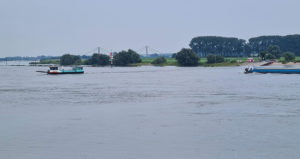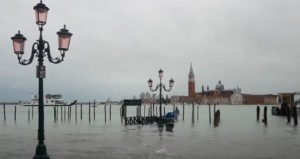Valencia faces major challenges due to wastewater contamination

-
 Editorial Team
Editorial Team
Share article:
In Valencia wastewater contamination is causing problems. The recent DANA (Depresión Aislada en Niveles Altos) that struck the Valencian Community in early November has caused significant damage to both potable water supply and sanitation infrastructures. This is causing health problems and a serious threat to natural environments such as the Albufera.
Wastewater has mixed with rainwater and spread wherever the water has passed, which includes pathogenic or potentially pathogenic bacteria, such as E. coli, Salmonella, intestinal viruses and some types of parasites such as Cryptosporidium”, explained José Manuel Bautista, professor at the Department of Biochemistry and Molecular Biology at the Complutense University of Madrid to BBC Mundo.
Weil’s disease
The government of Valencia reported on Friday the 8th of November two probable cases of Weil’s disease (leptospirosis) in volunteers who helped in the municipalities affected by the floods. The Spanish organisation of infectious diseases semFYC said that more cases of this disease can be expected soon due to contact of people with wastewater. According to Semfyc these kind of infections are common after extreme floodings. Faeces of rats in stagnant water are causing the infection, that usually appears between 7 and 14 days.
Environmental pollution
The flooding caused damaged to sewage systems, leading to overflows and leaks. This damage has resulted in untreated wastewater entering rivers and streams, which eventually flow into the Albufera. The influx of pollutants threatens the delicate balance of this ecosystem, endangering its biodiversity and water quality.
Restoring WWTP’s
In Valencia the Entidad Pública de Saneamiento de Aguas Residuales (EPSAR) is the public entity responsible for managing wastewater treatment plants (WWTP’s) and solving wastewater problems. EPSAR has been actively involved in restoring the affected wastewater treatment plants. They have implemented preventive measures to ensure the proper functioning of the wastewater treatment plants and the safety of their workers.
Provision of safe drinking water
The torrential rains and subsequent flooding also disrupted the potable water supply in several municipalities. Drinking water treatment plants and distribution networks were overwhelmed, leading to interruptions in service. Efforts are still underway to restore these services, but the extent of the damage has complicated and delayed the process. People leaving in the affected areas are now getting drinking water in bottles.

















